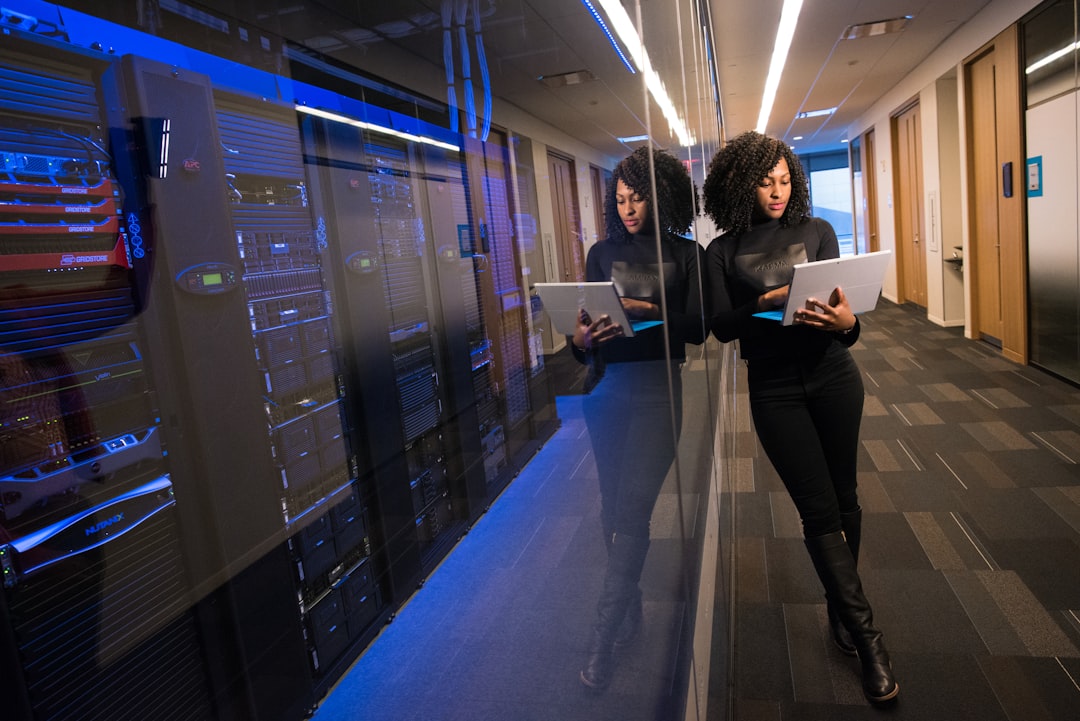Unlock encrypted content
Please enter your SSCE key to initiate on-the-fly decryption.
Decryption key: (Click cancel if you don't have the key)
Copied link to clipboard.
This feature is unavailable for free accounts. Upgrade now and enjoy all Premium benefits.
Go Premium!
This feature is unavailable for free accounts. Upgrade now and enjoy all Premium benefits.
Go Premium!
Please open this page in browser ( Google Chrome or Safari ) to use this feature.
Open In Browser
Online Collaboration: The Future of Remote Work
Random related video for this blog.
Copied share link to clipboard.
With the rise of remote work, the need for efficient and effective collaboration tools has never been greater. From virtual meetings to shared document editing, online collaboration platforms offer a wide range of features that enable seamless communication and productivity. In this article, we will explore the various aspects of online collaboration and how it is shaping the future of work.
Remote Backup Capacity: Ensuring Data Security
One of the key benefits of online collaboration is the ability to securely store and backup data remotely. Traditional methods of data storage, such as physical hard drives or local servers, can be vulnerable to data loss due to hardware failure, theft, or natural disasters. Online collaboration platforms offer a solution to this problem by providing robust remote backup capacity. By leveraging cloud storage solutions like FileLu, businesses and individuals can securely store their data in remote servers. These servers are typically housed in secure data centers with multiple layers of protection to ensure data integrity. In the event of a hardware failure or other unforeseen circumstances, the data can be easily restored from the backup, minimizing downtime and loss of productivity.Big Data Storage Solutions: Harnessing the Power of Data
As the amount of data generated continues to grow exponentially, businesses are faced with the challenge of storing and managing vast amounts of information. Big data storage solutions offered by online collaboration platforms enable organizations to harness the power of data for insights and decision-making. By utilizing advanced algorithms and distributed storage systems, these platforms can efficiently handle large volumes of structured and unstructured data. This allows businesses to store, process, and analyze data in real-time, leading to valuable insights and improved decision-making. For example, a retail company can analyze customer purchase patterns to optimize inventory management and personalize marketing campaigns.Data
Synchronization: Seamless Collaboration Across Devices In today's fast-paced world, individuals and businesses often work across multiple devices, such as laptops, smartphones, and tablets. Data synchronization is a crucial aspect of online collaboration that ensures seamless collaboration and access to up-to-date information across all devices. By utilizing data synchronization technology, online collaboration platforms enable users to work on the same document or project from different devices. Changes made on one device are automatically updated on all other devices, eliminating the need for manual file transfers or version control. This not only improves productivity but also enables real-time collaboration, even when team members are geographically dispersed.
Virtual Realities: Transforming Collaboration
Virtual reality (VR) is an emerging technology that has the potential to revolutionize online collaboration. By creating immersive and interactive virtual environments, VR allows users to collaborate as if they were in the same physical space, regardless of their actual location. Imagine a team of architects working on a building design. With VR technology, they can step into a virtual representation of the building and make real-time changes, all while being in different parts of the world. This level of collaboration not only enhances creativity and problem-solving but also reduces the need for costly and time-consuming travel.Transhumanism: Blurring the Line Between Humans and Technology
Transhumanism is a philosophical movement that advocates for the use of technology to enhance human capabilities. While still in its early stages, transhumanism has the potential to significantly impact online collaboration and the future of work. Advancements in artificial intelligence (AI) and machine learning are already transforming how we collaborate online. For example, AI-powered chatbots can assist with customer support, freeing up human agents to focus on more complex tasks. As technology continues to evolve, we can expect to see further integration of AI and other emerging technologies into online collaboration platforms, ultimately blurring the line between humans and machines.Futuristic Gadgets: Enhancing Collaboration Experience
The future of online collaboration holds exciting possibilities with the advent of futuristic gadgets. From augmented reality glasses to haptic feedback devices, these gadgets have the potential to enhance the collaboration experience and make it more immersive and intuitive. Imagine attending a virtual meeting where participants can see and interact with holographic representations of each other. Or using a haptic feedback device to physically feel objects in a virtual environment. These gadgets not only make collaboration more engaging but also enable new ways of expressing ideas and collaborating on complex projects.Automation and Job Displacement: The Changing Landscape of Work
Automation has been a topic of discussion in recent years, with concerns about job displacement and the future of work. While automation can indeed replace certain repetitive tasks, it also opens up new opportunities for collaboration and innovation. By automating routine and mundane tasks, individuals and teams can focus on more creative and strategic aspects of their work. This shift allows for greater collaboration and the exploration of new ideas. For example, instead of spending hours manually compiling data, automated data analysis tools can provide insights in real-time, enabling teams to make data-driven decisions faster.Robust Downloading Tools: Efficient Data Transfer
Robust downloading tools are essential for seamless collaboration and efficient data transfer. Whether it's sharing large files or downloading resources for a project, having reliable and fast downloading tools is crucial. FileLu offers a comprehensive set of downloading tools that cater to various needs. From file transfer and FTP backup to uploading videos and auto camera upload, their platform ensures smooth and secure data transfer. With their large file transfer capabilities, users can send files up to 250 GB in size, eliminating the need for cumbersome physical storage devices or unreliable file sharing methods.Internet of Everything (IoE): Connecting People, Devices, and Data
The Internet of Everything (IoE) is a concept that extends beyond the traditional Internet of Things (IoT). It envisions a world where people, devices, and data are seamlessly connected, enabling new levels of collaboration and productivity. IoE creates an ecosystem where devices can communicate with each other, collect and share data, and make intelligent decisions. For example, in a smart office environment, employees can collaborate with AI-powered virtual assistants, share data across devices, and automate routine tasks. This interconnectedness not only enhances collaboration but also streamlines workflows and improves overall efficiency.Conclusion
Online collaboration is transforming the way we work and interact with others. From remote backup capacity and big data storage solutions to virtual realities and automation, the possibilities are endless. As technology continues to advance, we can expect to see even more innovative tools and platforms that will further enhance collaboration and productivity. FileLu, with its robust cloud storage and downloading tools, is at the forefront of online collaboration. Their secure remote backup capacity and large file transfer capabilities make them an ideal choice for businesses and individuals looking to streamline their collaboration efforts. By embracing online collaboration and leveraging the power of technology, we can shape a future where work knows no boundaries.Frequently Asked Questions (FAQs) Question: How does online collaboration improve productivity?
Answer:
Online collaboration enables teams to work together seamlessly, regardless of their physical location. It eliminates the need for time-consuming meetings, allows for real-time collaboration, and streamlines workflows, ultimately improving productivity. Question: Are online collaboration platforms secure?
Answer:
Yes, online collaboration platforms prioritize data security and employ various measures to protect user information. Platforms like FileLu offer secure remote backup capacity and encryption file sharing to ensure the confidentiality and integrity of data. Question: Can online collaboration platforms handle large files?
Answer:
Yes, platforms like FileLu have large file transfer capabilities, allowing users to send files up to 250 GB in size. This eliminates the need for physical storage devices or unreliable file sharing methods. Question: How does automation impact online collaboration?
Answer:
Automation simplifies routine tasks, freeing up time for more creative and strategic collaboration. It also enables real-time data analysis and decision-making, improving the efficiency and effectiveness of collaboration efforts. Question: What is the future of online collaboration?
Answer:
The future of online collaboration holds exciting possibilities, including virtual realities, futuristic gadgets, and the integration of AI and other emerging technologies. These advancements will further enhance collaboration and reshape the way we work.
Case Studies: 1. Company XYZ, a global software development firm, implemented an online collaboration platform to streamline their remote work processes. By utilizing data synchronization and virtual meeting features, their teams were able to collaborate seamlessly, resulting in increased productivity and faster project delivery. 2. The University of ABC adopted an online collaboration platform to facilitate research collaborations among its faculty members. With features like secure remote backup capacity and big data storage solutions, researchers were able to securely store and share large datasets, leading to groundbreaking discoveries and cross-disciplinary collaborations. 3. Non-profit organization DEF utilized online collaboration tools to connect volunteers from different parts of the world. By leveraging automation and job displacement, they were able to streamline volunteer management processes, resulting in more efficient operations and increased impact in their social initiatives.
By Amelia Isabella
Email: [email protected]
Related
Flexible File Sharing Permissions: A Pathway to Enhanced Collaboration and...
June 19, 2023
Read More
Nanotechnology and Cutting-Edge Innovations: Transforming the Future of File Streaming...
June 19, 2023
Read More
Efficient File Sharing and Cybersecurity Solutions: Exploring Tesla Autopilot Protection,...
June 19, 2023
Read More
Robust Downloading Tools and Efficient Data Transfer: Exploring the Benefits...
June 19, 2023
Read More
Title: The Power of Free Cloud Storage: Scalability, Blockchain Technology,...
June 19, 2023
Read More
Cloud Storage for Creative Professionals: Enhancing Collaboration and Efficiency
June 19, 2023
Read More
Real-time Collaboration and Cloud Storage: The Benefits of File Management...
June 19, 2023
Read More
Autonomous Vehicles: A User-Friendly Interface for File Storage on Private...
June 19, 2023
Read More
Streamlined Workflows and Enhanced Collaboration with Human-Machine Interface and Automatic...
June 19, 2023
Read More
Popular
Latest
The Future of Digital Transformation: Exploring Smart Homes, Efficient File...
November 30, 2025
Read More
Exploring the Benefits of Cloud Storage and Innovative Technologies in...
November 26, 2025
Read More
The Future of Technology: Exploring Biohacking, Space Tourism, and Digital...
November 23, 2025
Read More
The Future of File Sharing: Streamlined Workflows for Photographers and...
November 19, 2025
Read More
Exploring the Intersection of Technology: From Cybersecurity to Augmented Reality...
November 16, 2025
Read More
The Future of File Management: Embracing Edge Computing and Efficient...
November 12, 2025
Read More
The Future of File Sharing: Exploring User-Friendly Solutions and Data...
November 5, 2025
Read More
The Future of Cloud Storage: How FileLu Empowers Creative Professionals...
November 2, 2025
Read More
The Future of Autonomous Technologies: Innovations in Robotics, File Sharing,...
October 29, 2025
Read More
Emerging Technologies Revolutionizing File Management: From Li-Fi to Robust Collaboration...
October 26, 2025
Read More
Emerging Technologies: Exploring the Impact of File Access Auditing, Genetic...
October 19, 2025
Read More
The Future of Data Storage: Exploring Advanced Encryption, Mobile Integration,...
October 5, 2025
Read More
Exploring the Future of Data Management: Security, Efficiency, and Cognitive...
September 28, 2025
Read More
Revolutionizing Data Management: Innovations in Storage, Security, and Sustainable Technology.
September 24, 2025
Read More

















